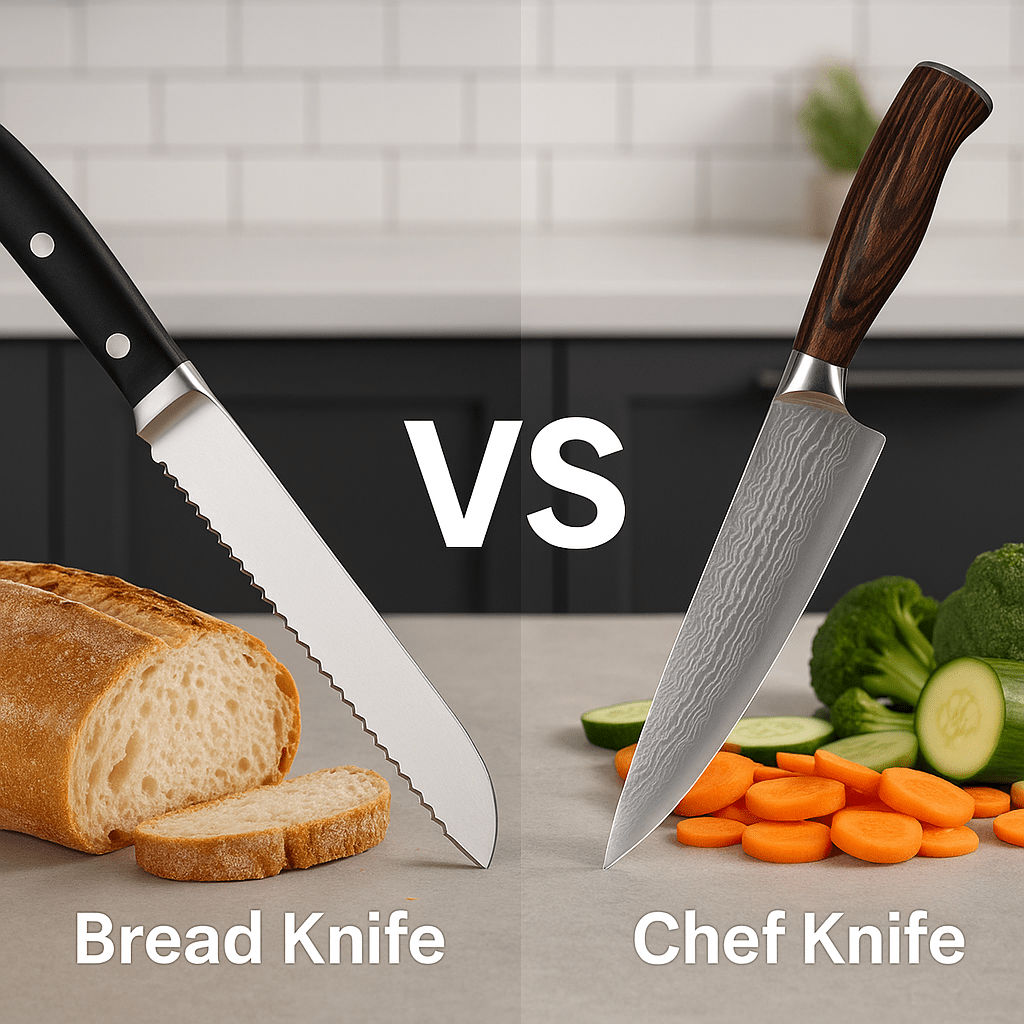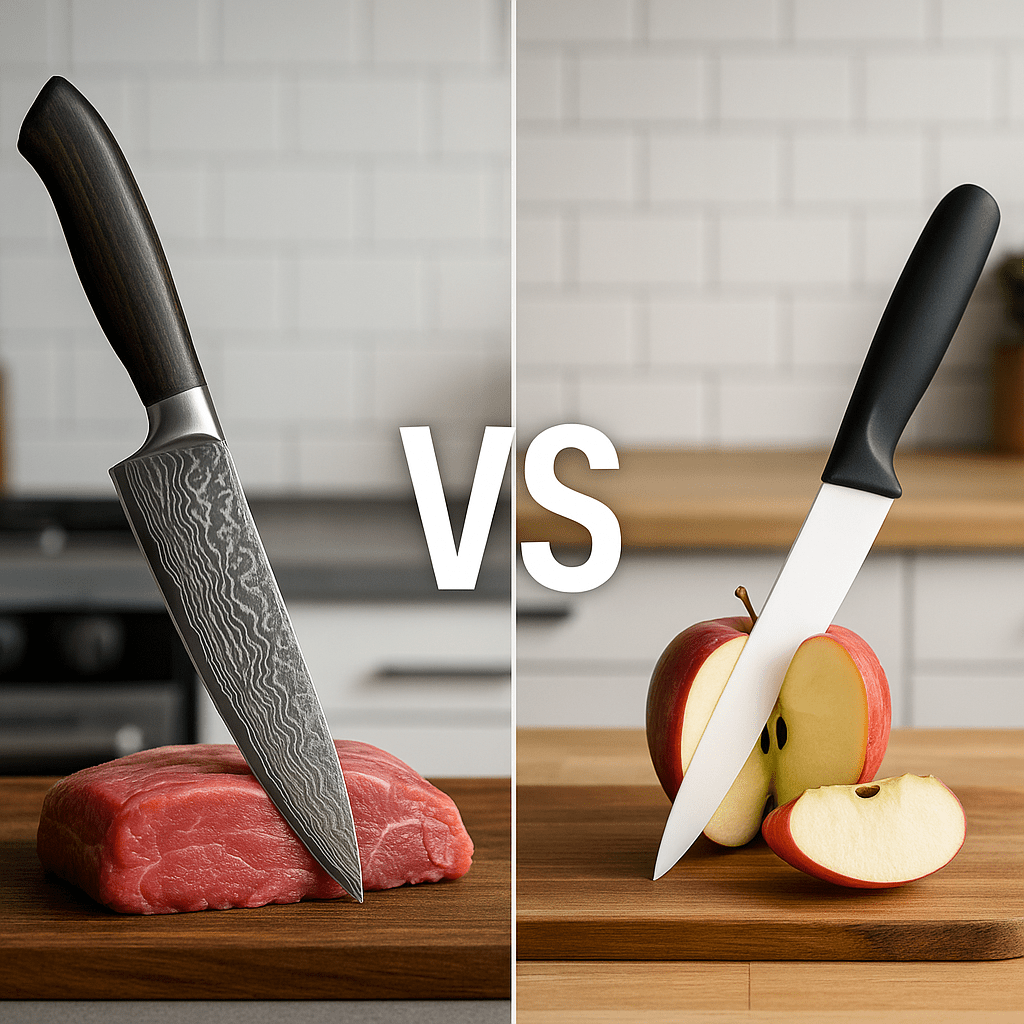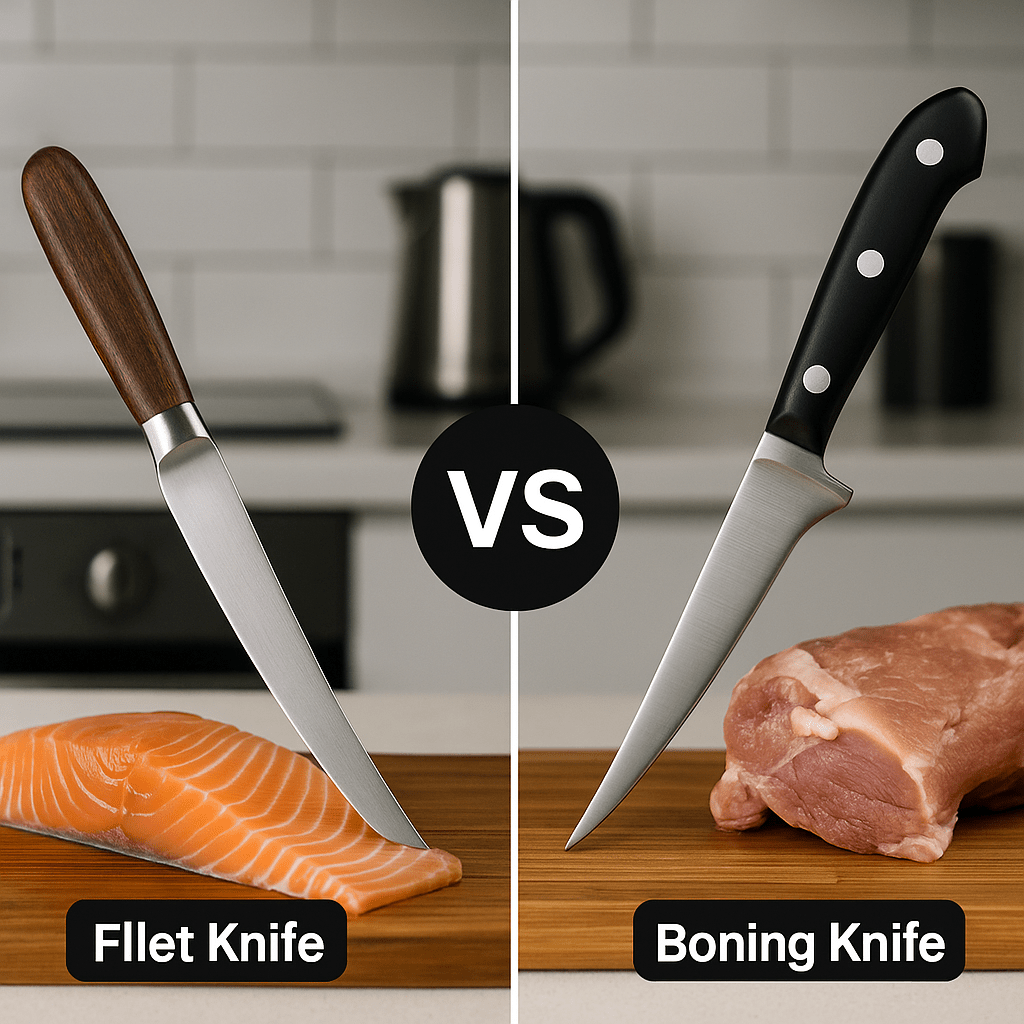
Bread Knife vs Chef Knife – Which Should You Buy First?
When building a knife collection, one of the most common questions is: should you start with a bread knife or a chef knife? Both are valuable tools in the kitchen, but their roles, designs, and importance differ greatly. In this guide, we’ll compare them in depth to help you decide which knife to buy first.
Blade Design and Structure
Bread Knife
The bread knife is a serrated blade, typically 8–10 inches long. Its teeth-like edge slices through crusty bread without crushing it. Serrated edges also excel at foods with tough exteriors and soft interiors, such as tomatoes or cakes.
Chef Knife
The chef knife, also called a Gyuto in Japanese styles, is the ultimate all-purpose knife. With a curved belly and pointed tip, it handles chopping, slicing, dicing, and mincing across nearly every ingredient. Chef knives range from 6 to 10 inches, with 8 inches being the most common.
Primary Uses
Bread Knife
- Slicing bread loaves without tearing.
- Cutting cakes with delicate crumb structures.
- Slicing tomatoes and citrus with minimal squishing.
Chef Knife
- Chopping vegetables such as onions, carrots, and herbs.
- Slicing meats, poultry, and fish.
- General-purpose prep for most kitchen tasks.
Strengths and Weaknesses
| Aspect | Bread Knife | Chef Knife |
|---|---|---|
| Versatility | Limited—mainly bread and soft foods | Extremely versatile—handles 80% of tasks |
| Ease of Use | Easy—sawing motion does the work | Requires skill for fine cuts and rocking motion |
| Sharpening | Difficult—serrated blades need special tools | Straightforward—can be sharpened on whetstones |
| Durability | Edge lasts long, but hard to restore once dull | Can be maintained indefinitely with care |
Which Should You Buy First?
For most cooks, the chef knife is the first essential purchase. It can handle nearly all prep work—meat, vegetables, herbs, and even some bread in a pinch. A bread knife is useful, but it is considered a secondary tool. Unless you bake bread daily, your kitchen will benefit more from the versatility of a chef knife.
Professional Insights
Professional chefs agree: no kitchen is complete without a chef knife. Bread knives are often present in restaurant kitchens, but they are used occasionally compared to the chef knife’s constant role. Japanese chefs, in particular, lean heavily on Gyuto knives as the foundation of their craft.
When to Add a Bread Knife
Once you have a reliable chef knife, adding a bread knife makes sense if:
- You frequently bake or buy fresh crusty loaves.
- You enjoy making cakes or pastries that require delicate slicing.
- You want a knife specifically for soft foods with tough skins.
Maintenance and Care
- Bread Knife: Wash and dry immediately after use, avoid twisting motions that stress the serrations, store safely to protect the teeth.
- Chef Knife: Hone regularly, sharpen with whetstones, hand wash and dry after each use, store on a magnetic strip or in a block.
Conclusion
While both knives are valuable, the chef knife should always be your first investment. It is versatile, long-lasting, and capable of replacing almost every other knife in the kitchen. The bread knife is a worthy addition once your core needs are covered.
Weekly Deal 🔥
Looking for your first high-quality knife? OSERM’s Japanese Damascus Chef Knives are crafted for versatility and gift-ready presentation, making them the perfect foundation for your kitchen.
You Might Also Like
- Serrated Knife vs Straight Edge – Which Works Better?
- Chef Knife vs Santoku Knife – Which Should You Choose?
- Knife Sets vs Individual Knives – Which Saves You Money?
Tags: bread knife vs chef knife, serrated knife comparison, essential kitchen knives, OSERM






